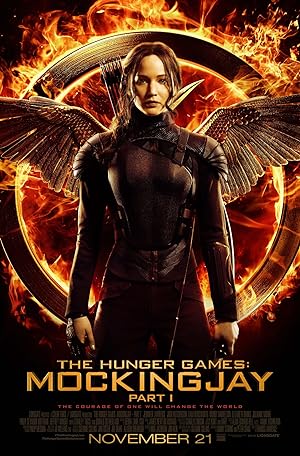My perspective on The Hunger Games: Mockingjay – Part 1 was greatly influenced by the events that unfolded in Ferguson on November 24, 2014 and Thailand. In Ferguson, it felt less like a report on a grand jury’s findings and more like theater. Why declare a state of emergency long before any announcement was made (which is not protocol-a state of emergency is usually declared AFTER an emergency)? Why make an announcement at night? Why would the prosecutor say that Brown’s death was a tragedy and encourage protest while simultaneously policemen were tear gassing protesters in their own neighborhood? Why explain that conflicting evidence does not equal indictment that leads to trial before a fact finder like a judge and jury to decide which evidence should be considered? Why do the residents have to protect their local businesses from looters when the police are clearly everywhere? Why would police leave unattended flammable equipment in the area? As I watched The Hunger Games: Mockingjay – Part 1, there is one pivotal scene where Katniss informs the cameras, “The Capitol has just bombed a hospital full of unarmed men, women and children. There will be no survivors. I want to tell people that if you think for one second the Capitol will treat us fairly if there’s a cease-fire, you’re deluding yourself. Because you know who they are and what they do. This is what they do and we must fight back! President Snow says he’s sending a message. Well I have one for him. You can torture us and bomb and burn our districts to the ground, but do you see that? Fire is catching! And if we burn, you burn with us!” Why is it that when a viewer watches a movie and hears that a government action killed an unarmed person, we react in horror and then cosign whatever reaction follows-violent or not, but in real life, that same viewer may support the killing of an unarmed person because that person is seen as a criminal (remember that time that Winona Rider was shot for shoplifting? I don’t either. Try googling shoplifting cigarettes. Not many deaths there either and in Brown’s case it is still a point of contention) Why do people ask “Why are they doing this?” in reference to local, nationwide, even worldwide peaceful protest? Why do we support fictional violent revolutions but peaceful calls for change are conflated with random acts of violence on property and decried? Why are protestors, who are property owners and gainfully employed, derided in memes that tell them to get a job? Would getting a job solve Katniss and Peeta’s problems with the Capitol? Maybe Thailand realizes something that Americans haven’t yet. The Hunger Games: Mockingjay – Part 1 may be a placeholder for the more sensational, action packed movie to follow, but it contains more revolutionary thought than we can handle in real life. The Hunger Games: Mockingjay – Part 1 shows that the leaders of the revolution can be just as commercialized and orchestrated as the establishment; the destructive real-life soul cost and PTSD associated with surviving violence and the real life consequences of struggle -the possibility of complete extinction for both sides. Ask yourself-in real life are you with Katniss or the Capitol?





